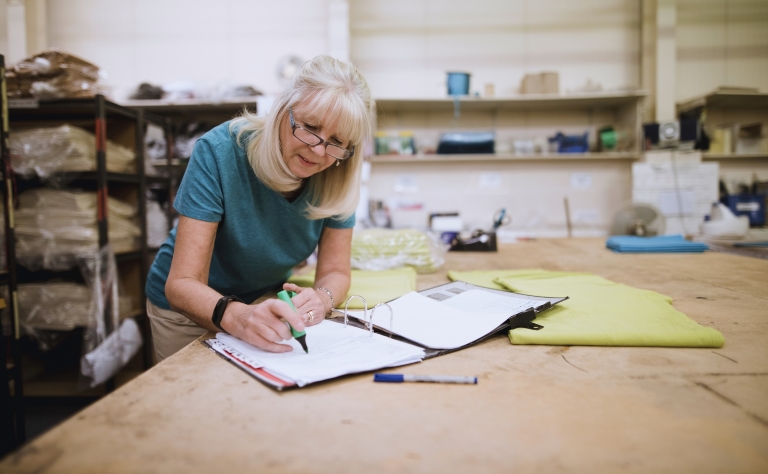Second self-employment coronavirus grant opens for applications

Posted: Mon 17th Aug 2020
The second grant through the Self-employment Income Support Scheme (SEISS) is now open for applications. It is available until 19 October 2020.
Extension of SEISS was first announced by chancellor Rishi Sunak in May. HMRC is contacting 3.4m customers who it thinks are eligible to apply and asking them to do so on a set date.
If you haven't heard from HMRC but think you are eligible, you can make a claim. You will be told if you are eligible or not and if so, you'll be able to claim a grant.
Eligibility criteria for second SEISS grant
To qualify for a grant of up to £6,750, eligible individuals will need to show they have been adversely affected by the coronavirus pandemic on or after 14 July.
Examples of being adversely affected include:
you're unable to work because you:
are shielding
are self-isolating
are on sick leave because of coronavirus
have caring responsibilities because of coronavirus
you've had to scale down, temporarily stop trading or incurred additional costs because:
your supply chain has been interrupted
you have fewer or no customers or clients
your staff are unable to come in to work
one or more of your contracts have been cancelled
you had to buy protective equipment so you could trade following social distancing rules
This grant is 70% of an self-employed person's average monthly trading profits, lower than the 80% covered by the first grant of up to £7,500 which closed in July.
To qualify for the grant, all of the following need to apply:
you traded in the tax year 2018 to 2019 and submitted your self assessment tax return on or before 23 April 2020 for that year
you traded in the tax year 2019 to 2020
you intend to continue to trade in the tax year 2020 to 2021
you carry on a trade which has been adversely affected by coronavirus
If you claim maternity allowance this will not affect your eligibility for the grant.
To work out your eligibility, HMRC will first look at your 2018 to 2019 Self Assessment tax return. Your trading profits must be no more than £50,000 and at least equal to your non-trading income.
If you're not eligible based on the 2018 to 2019 Self Assessment tax return, HMRC will then look at the tax years 2016 to 2017, 2017 to 2018, and 2018 to 2019.
The grant will be paid directly into your bank account, in one instalment.
A full guide to how HMRC works out trading profits and non-trading income for the Self-Employment Income Support Scheme is here.
How different circumstances affect SEISS
There are some people for whom the rules are slightly different. The following are now eligible for both the second grant and also the first SEISS grant of up to £7,500:
Self-employed parents who did not submit a tax return for 2018/2019, or whose trading profits in 2018/19 were less than their other income (and were therefore ineligible for the SEISS) because they were pregnant or taking time out of their trade to care for their new-born or newly adopted child will be able to claim for the SEISS, as long as they meet the other standard eligibility criteria.
Self-employed army, navy and air force reservists who did not file a tax return for 2018-19 or did file a return but failed the profits test due to salary and compensation paid by the Ministry of Defence for their services as a reservist (which they undertook for at least 90 days) will be able to claim for the SEISS, as long as they meet the other standard eligibility criteria.
For those two scenarios, HMRC will use either the 2017-18 or both 2016-17 and 2017-18 self-assessment returns for eligibility and grant calculation. Eligible applicants can make a claim for the first SEISS grant, the second SEISS grant, or both.
A full government guide to how different circumstances affect the Self-Employment Income Support Scheme is here.
How to make a claim for the second SEISS grant
You can make your claim for a self-employment grant here. You have until 19 October to apply.
You must make the claim yourself. You must not ask a tax agent or adviser to claim on your behalf as it will trigger a fraud alert, which will delay your payment.
To make a claim, you will need:
Self Assessment Unique Taxpayer Reference (UTR) - if you do not have this, find out how to get your lost UTR
National Insurance number - if you do not have this, find out how to get your lost National Insurance number
Government Gateway user ID and password - if you do not have a user ID, you can create one when you make your claim
UK bank details (only provide bank account details where a Bacs payment can be accepted) including:
bank account number
sort code
name on the account
your address linked to your bank account
HMRC will check your claim and pay your grant into your bank account in the next six working days. You will receive an email confirmation.
You should keep any evidence that your business has been adversely affected by coronavirus at the time you made your claim, such as:
business accounts showing a reduction in turnover or increase in expenditure
confirmation of any coronavirus-related business loans you have received
dates your business had to close due to lockdown restrictions
dates you or your staff were unable to work due to coronavirus symptoms, shielding or caring responsibilities
We recommend you also read the full government guidance for SEISS here.

